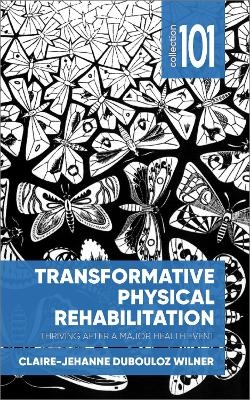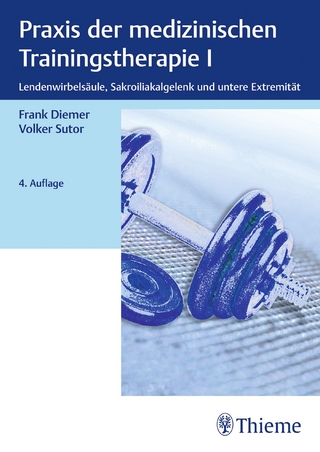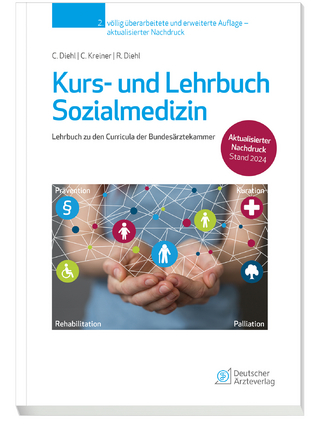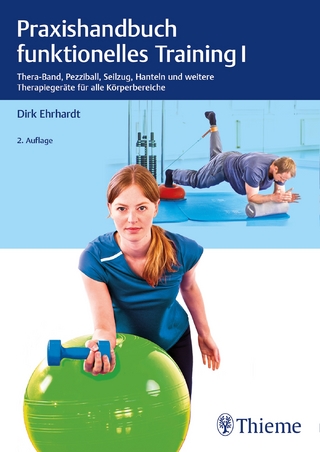
Transformative Physical Rehabilitation
University of Ottawa Press (Verlag)
978-0-7766-2900-1 (ISBN)
In adult physical rehabilitation, the transformative learning theory presents the basis for a detailed model of Meaning Perspective Transformation in Physical Rehabilitation based on research evidence, with examples and cases, and presents directives for clinical applications.
Transformative Physical Rehabilitation: Thriving After a Major Health Event draws from the theoretical background of transformative learning in adult education (Mezirow) to discuss the expansion and transfer of knowledge to clinical rehabilitation and community health rehabilitation settings for rehabilitation interventions.
It also presents ground breaking findings of a fifteen-year research project on the process of meaning perspective transformation with client/patient groups. The project generated the first model of transformative change in the field of physical rehabilitation, built on the results of successive, externally funded research projects completed for the first time with various client populations undergoing interventions in occupational therapy, physiotherapy, and other physical health rehabilitation disciplines.
The book is written for clinicians, educators, and students of physical rehabilitation, as well as for those who are interested in helping a loved one deal with personal change.
Published in English.
Claire-Jehanne Dubouloz Wilner has been a professor of occupational therapy at the School of Rehabilitation Sciences at the University of Ottawa for more than thirty years. Previously, she enjoyed a ten-year career as a clinical therapist at Montréal’s Gingras-Lindsay Rehabilitation Institute. She has been a key player in the development of rehabilitation sciences education at the University of Ottawa, and has received many external research funds and prizes and awards, including the prestigious Muriel Driver Award (2014) and SSHRC grants.
Preface
Acknowledgments
Introduction
An Illustrative Case: Lisa
1. The Theory of the Transformative Learning Process
Sources
Definition
General Description of the Theory
Central Concepts
Transformation
Meaning Perspectives or Frames of Reference
Habits of Mind
Meaning Schemes or Points of View
Critical Reflection
Back to Lisa
2. Understanding of Meaning Perspective Transformation: Research Evidence
The Grounded Theory Approach and Research Questions
The Rehabilitation Studies
Clients with Spinal Cord Injury
Clinical Context
Core Meaning Perspectives
Research Connections
Clients with Spinal Cord Injury (2)
Clinical Context
Core Meaning Perspectives
Research Connections
Clients with Multiple Sclerosis
Clinical Context
Core Meaning Perspectives
Additional Comments
Research Connections
Clients in Rehabilitation Following a Cardiac Event
Clinical Context
Core Meaning Perspectives
Research Connections
Clients with Rheumatoid Arthritis (2)
Clinical Context
Core Meaning Perspectives
Research Connections
Clients with Rheumatoid Arthritis
Clinical Context
Core Meaning Perspectives
Contextual Factors That Delayed Meaning Perspective Transformation
Meaning Perspective Distortions
Research Connections
Further Note on Distortions
Arthritis Health Education Groups and Meaning Perspective Transformation
Clinical Context
Core Meaning Perspectives
Research Connections
Meaning Perspective Transformation in a Stroke Support Group
Context of Care
Clinical Context
Core Meaning Perspectives
The Process of Meaning Perspective Transformation
3. The Model
Description of the Model
The Trigger Phase
Readiness for Change
The Changing Phase
The Outcome Phase
4. Clinical Use of the Model
Identifying Where Clients Are in the Transformation
Continuum
And the Upshot is…
References
| Erscheinungsdatum | 27.01.2020 |
|---|---|
| Reihe/Serie | 101 Collection |
| Verlagsort | Ottawa |
| Sprache | englisch |
| Maße | 127 x 203 mm |
| Gewicht | 150 g |
| Themenwelt | Medizin / Pharmazie ► Physiotherapie / Ergotherapie ► Rehabilitation |
| ISBN-10 | 0-7766-2900-X / 077662900X |
| ISBN-13 | 978-0-7766-2900-1 / 9780776629001 |
| Zustand | Neuware |
| Haben Sie eine Frage zum Produkt? |
aus dem Bereich


